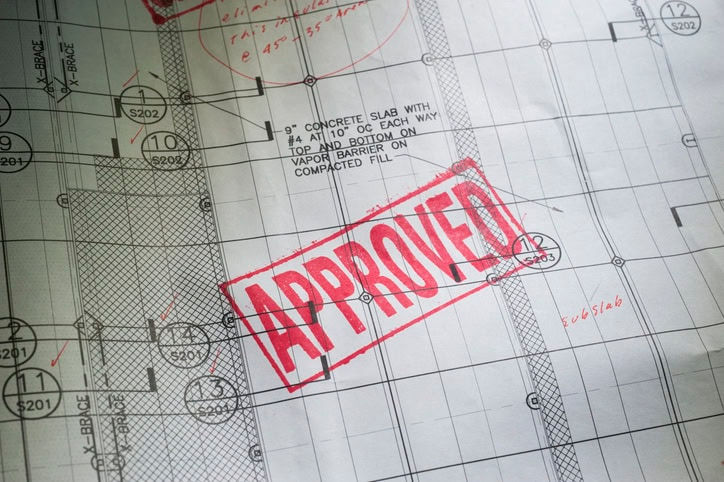Understanding Your Right to Appeal Planning Decisions
- Nigel Salmon

- Aug 18, 2025
- 3 min read
Navigating the planning process can be challenging, especially when a Local Authority refuses permission or imposes conditions that you disagree with. Understanding how the Planning Inspectorate, who determines appeals, approach and decide an appeal is crucial to maximising the likely success of your appeal.
At Salmon Planning + Architecture, we guide our clients through every step of the process. This includes deciding whether or not to lodge an appeal, or to reapply for permission having addressed the reasons why the pervious application failed.

What Planning Decisions Can You Appeal?
If you’ve received an adverse planning decision, you have the statutory right to appeal.
Here are the decisions that can be challenged:
1. Refusal of Planning Permission
This includes all types of planning applications, from major developments to smaller-scale projects such as householder applications (for example extensions or alterations to your home). If the local council denies your planning permission, you can appeal the decision. Other than for householder appeal which must be made within 3 months of the decision, all other planning applications have a 6 month time limit.
2. Refusal of Listed Building Consent
If your property is listed and your application for alterations or repairs is refused, you can appeal the refusal of Listed Building Consent. Protecting the character and historic value of these buildings is important but appeals provide a mechanism to challenge decisions. If, for example the Local Authority fails to give sufficient weight to public benefit of a development, there is a 6 month time limit to lodge an appeal.
3. Refusal of Advertisement Consent
Approval is required for certain types of advertisements on buildings or land. If your advertisement consent is refused, you have the right to appeal within 2 months of the decision.
4. Refusal of a Certificate of Lawful Use or Development
Certificates of Lawful Use or Development confirm whether an existing or proposed use or development is lawful. If your application is refused, you can appeal the decision. There is no time limit for appealing against such a decision.
5. Enforcement Notices
Local authorities issue enforcement notices when they believe a breach of planning control has occurred. There is a right to appeal within 1 month after the notice comes into effect.
Any person having an interest in the land can appeal or any of the following grounds:
a) Planning permission ought to be granted for the breach of planning control
b) the breach has not occurred
c) that those matters do not constitute a breach in planning control
d) that the date when the notice was served, no enforcement action can be taken
e) the enforcement notice was incorrectly served
f) that the steps to remedy the breach exceed what is necessary
g) the period for compliance with the notice is unreasonable.
6. Conditions Imposed on Planning Permissions
If planning permission is granted but with conditions attached that you find unacceptable or unreasonable. These can be challenged through an appeal. The process and timescale is the same as with a planning application decision.
7. Failure to Make a Decision Within the Statutory Timeframe
If the council does not decide on your planning application within the statutory determination period, this is 8 weeks and 13 weeks for major application, you have the right to appeal this against a deemed refusal of planning permission. This ensures that applicants are not left waiting indefinitely. An appeal can only be submitted within 6 months after the statutory determination period of its appeal, or longer if an extension of time has been bilaterally agreed.
Why Consider an Appeal?
Appealing a planning decision can be a complex process, but it offers a vital opportunity to overturn refusals, modify unfair conditions, and prevent enforcement action. With expert guidance from a professional planning consultancy like Salmon Planning + Architecture, you can improve your chances of success by submitting a strong, well-evidenced appeal.
According to the Planning Inspectorate, 28% of appeals were successful during the second quarter of 2025.
In 2025 at Salmon we have had a decision on 14 appeals. We have won 11 – 78% success rate, including an award of costs against a Local Planning Authority.
The following types of appeals were considered:
Certificate of Lawfulness
refusal of planning permission
refusal of advertisement consent
against non-determination of planning applications
appeals against conditions imposed on planning permissions
prior approval decision for Class Q development
How We Can Help
Our highly experienced team of chartered planners, all with experience at senior level in Local Government understands the decision making process at appeal. We are here to advise whether you have a challengeable case and to provide expert evidence to be considered at the appeal.
Ready to challenge a planning decision?
Contact Salmon today to discuss your options and secure the outcome you deserve.




Comments